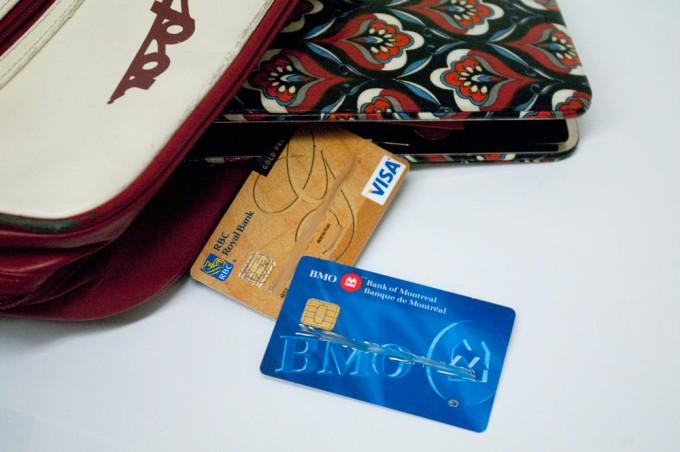Comment by Biz & Tech
Editor Jeff Lagerquist
A university education has never been more expensive. Now more than ever students are looking towards credit to bankroll their books, boarding and booze.
A diploma comes with close to $28,000 in debt, and grads will spend the next 14 years paying it off, based on an average starting salary of $39,523, according to RateSupermarket.ca.
The total price tag, if you leave your parents’ basement, is $80,000 according to their numbers.
It begs the question, why would Ryerson invite major credit card issuer MBNA to campus every year to market a card, emblazoned with a picture of the Kerr Hall quad, to their cash-strapped students? A recent report from BMO says 59 per cent of Canadians make impulse purchases, with 52 per cent regretting it after the fact. Forty-three per cent spend beyond monthly income.
Ryerson’s students are among the most financially vulnerable in Canada. Many are away from home for the first time, tenuously learning responsible spending habits in Canada’s retail and entertainment capital.
“You guys want some free gear?”Ah, the sound of freebies being offered with an impending catch.
This was how I met 21-year-old Jeremy Hindriksen, a “brand ambassador” with SDI Marketing, a company contracted by MBNA to set up shop at various locations on campus.
In front of a table piled high with Ryerson duffel bags, mugs, blankets, and shirts in the lower level of the library building, he talks students into a Ryerson University Affinity MasterCard.
His pitch focuses on earning “points” and the impressive table of swag, as he jots down names, addresses, and incomes of students and their parents.
A one-page pamphlet called “Be Good With Money” sits next to the Ryerson goodies. Hindriksen doesn’t mention it until I asked.
“Some people are in a hurry to get to class and whatnot, so they don’t take the time to hear all the details,” said Hindriksen.
In just two minutes, a student can walk away with a university themed prize and the promise of a low-interest credit card in the mail.
“Some people don’t even realize that they can affect their credit rating,” said Hindriksen.
As much as I don’t appreciate his cavalier approach to doling out credit cards, I can’t fault him for doing his job.
Slick credit card promotions and poor spending habits are a reality of capitalism, according to Bruce Sellery, founder of personal finance training company Moolala and cohost of the reality-TV show Million Dollar Neighbourhood.
He says learning how to use a credit card responsibly while off at school takes education and experience, a lot like your first night at the bar.
“Credit, like liquor, needs to be consumed responsibly. Many 19-year-olds learn the harsh lesson of worshipping the porcelain god. I wouldn’t say it’s a great way to learn, but it’s going to happen,” said Sellery.
Realistically, it’s hard to criticize credit card companies for targeting new customers. That’s just business.
The secretive three-way relationship between MBNA, Ryerson, and the Ryerson Students’ Union (RSU) is much more unsettling.
“When a new account is opened, Ryerson receives revenue. The volume of card holder transactions also generates royalty payments,” said Tyler Forkes, executive director of alumni relations. He says the exact figures are confidential.
The RSU confirmed with The Eyeopener in 2010 that they receive $10,000 annually for bursaries from the alumni association.
While it may be lucrative for Ryerson to market credit cards to students with free trinkets, doing so without putting forward a reasonable effort to make sure they understand what they’re getting into is irresponsible.
It’s time universities forget about partnering with credit card companies and start to look out for their number one customers: students.












Leave a Reply